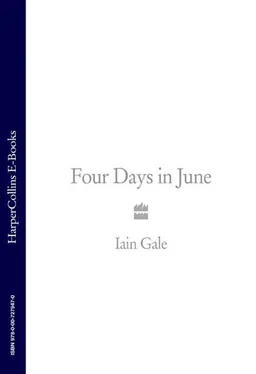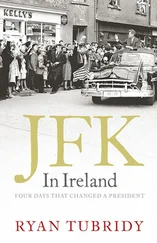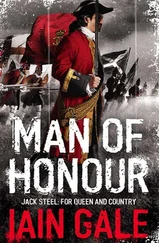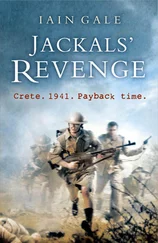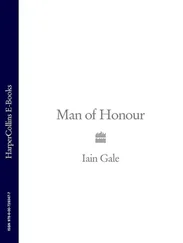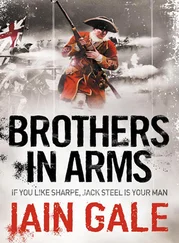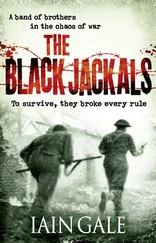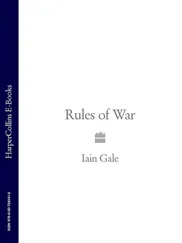At the end of May he had arrived in Brussels. It was only a week now since Magdalene had joined him – for what had proven to be the most wonderful seven days of his life.
He was only required to attend the Duke – ‘the Peer’, as De Lancey and his brother officers liked, with respect, to call him – for one hour a day, and from their grand lodgings in the house of the Count de Lannoy, on the Impasse du Parc by the Parc Royale, they had taken daily promenades about the town.
De Lancey had delighted in showing his young bride the wonders of the continent – almost as much as he enjoyed showing her off to the many beaux and beauties of British society who had crossed the Channel in expectation of the coming battle. But the couple had avoided all the dances and formal dinners, preferring to spend their time together, alone.
Even this evening they had spurned an invitation to a ball being held by no less than the Richmonds. The Peer, he believed, proposed to attend. Such appearances were vital for morale, and he was well aware that Wellington relished the attention of the ladies. But for his own part De Lancey had contrived the clever excuse of a small private dinner with his old friend Miguel d’Alava, from which he knew he would be able to steal away early to rejoin his wife. Now, having dismissed his valet, Jervis, for the evening – the servants too would have their dance – he was beginning to regret his generosity. He fumbled with his coat.
‘Damn these medals.’ He had never been good with intricate things. ‘My darling. Do help me, please. These confounded decorations. How does one put them on?’
She took his Knight’s Cross – along with the other shining gold and silver circles and crosses – the material proof of his bravery, and with her tiny hands began to pin them on to his coat. As she did so she gazed up at him. Those eyes.
‘Tell me again, William, about Talavera. And Bussaco. About how our boys came up over the ridge and chased the Frenchies down the hill. And of Badajoz. Oh, how I love that tale. All those poor, brave boys of yours in their hopeless attacks on the ramparts. And then the glorious victory. And the Peer in tears. And all the tragedy. Do tell me, William. Oh, what it must be to be a soldier!’
‘It is not quite the grand thing that you imagine, Magdalene. Mostly it is spent in marching. And waiting. And when the battle does come it is the most terrible thing you have ever seen. But it is glorious. Perhaps the most glorious thing a man can know … apart from love.’
‘Oh, William. Do you suppose that I might see a battle? Might come with you? Some wives do. Mrs Fortescue told me that the wife of Quartermaster Ross of the 14th has been with her husband on many of his campaigns, these full ten years, and that she fully intends to be with him in the coming battle.’
‘Magdalene. Dear, darling Magdalene. You are not the wife of a quartermaster. I am the Quartermaster General. A colonel.’
‘But I should so love to see you go into action, William.’
‘I have told you before, my darling. I do not “go into action”. My action is all about taking and giving commands. I shall be with the Peer throughout the battle. By his side. Issuing his orders. That will be my “action”.’
‘But I do so want to see your brave boys finish Bonaparte at last. It will be the last battle. Everyone says so.’
‘I daresay that in that one thing at least “everyone” for once is right, my darling. One last battle.’
She hugged him, smiling. ‘Is he really as awful a monster as they say, William? Have you seen him? Papa says that at Brienne he was really a very quiet little schoolboy. Very kind-natured. Clever. Good at snowball fights, he says.’
‘Your father, darling Magdalene, with respect, did not know the Bonaparte that we play with. The man is a tyrant. We presumed that we had rid the world of him. And now he has returned. He was not satisfied with an honourable peace. He still desires to have the world. To possess our world. Your world. He would reduce free-born Britons to slaves and put the world in chains to his own despotism. He proclaims his cause as freedom, but it is no freedom that I know: the freedom for which we fight. If you had seen, Magdalene, the things that I have seen. Terrible things. In Spain. Things done in his name. You would not talk of schoolboys and snowballs. He is a tyrant, Magdalene. A curse. An evil. And now we must silence him. Forever.’
‘I … shall not ask again, William.’ She let him go.
‘And I am sorry. I did not mean to become so passionate.’
‘You know, William,’ clinging once again to his tall, strong frame; stroking his back with her hand, pressing her leg against his own; touching the forelock of his thick, dark hair; running a finger down the length of his side-whisker, ‘it is never in my purpose to cool your passion.’ She looked him straight in the eyes. Smiled at her handsome soldier.
‘Magdalene. You quite disarm me.’
‘Oh no, William,’ letting go again, turning away, then back to look at him. Shamming coyness. ‘It is quite the contrary. You know, when we were first introduced I was quite intimidated by you. You had taken Edinburgh by storm. The talk of the town. So dashing. My … rambling soldier.’ She giggled.
‘Magdalene. Please. I am a soldier. I am an officer. I do command men.’
She smiled again. Through half-lowered lids. Played with the pale green silk bow of her low décolletage . ‘Well, then. Am I not also yours to command? Command me.’
Of course he had been late for dinner. Had arrived flushed, unsettled. The crumpled necktie told its story. D’Alava had not minded. He had known De Lancey for some years now. They had served together against the French in the fight for his homeland. Had ridden together with their friend Wellington. He knew too that he had only recently been married. And at a time when this day might be your last on earth, there were surely more important matters than social punctuality. Besides, he enjoyed the Englishman’s company. And De Lancey, in turn, relished the lack of formality of d’Alava’s house. Had become used to its like in Spain. Was his own man. Hated the pomp of the court and the garrison officers’ mess. Preferred the relaxed atmosphere of campaign life, where one night might bring an inn for a billet, another an open field. And this was as close as he could find to it. This, and the unexpected joy and daily novelty of his life with Magdalene.
‘But William, tell me.’ The genial, balding Spaniard flashed his dark, almost black eyes at his old friend, grinned and took another sip of the heavy red wine which he had brought here in no little quantity, from his own estates in Navarre, when appointed Spain’s Ambassador in Brussels. ‘You of all men have the Duke’s confidence … even above me. How does he intend to deal with Bonaparte?’
‘You know, Miguel, as I do, that my Lord Wellington is never quick to explain what he intends on the battlefield. Why, in the campaign of Salamanca, you will well recall, he did not vouchsafe any plan of execution, even to Sir George Murray. He is expert, Miguel, at keeping us all in the dark with regard to his intentions. He will sit at table with the General Staff and fill their heads full of humbug as to their dispositions. And then, not twelve hours later, will instruct me to issue an order which will march the brigades in quite the opposite direction. What we do know is that when Bonaparte moves on to the offensive – as move he will – we, the British and our Dutch and Belgian allies, are his most likely target. We are merely waiting for him to play his hand. You know that when the Peer met with Prince Blü cher last month it was agreed that the two armies should support each other and that the crucial axis of communication was to be the road from the Prussian army – at Sombreffe – to ourselves, around Nivelles.’
Читать дальше
